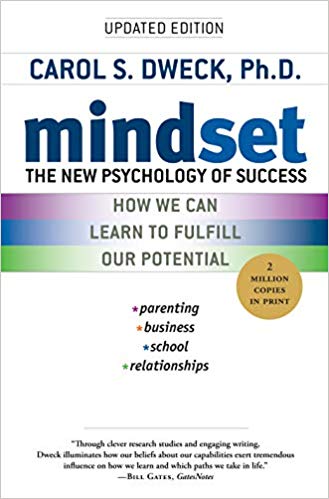

This article is an excerpt from the Shortform summary of "Mindset" by Carol Dweck. Shortform has the world's best summaries of books you should be reading.
Like this article? Sign up for a free trial here .
As parents, we want to praise our kids, but is praising children doing more harm than good?
We’ll cover the negative consequences of praising children and discuss how to praise a child in a way that encourages a growth mindset rather than a fixed one.
The Dangers of Praising Children
While labeling people negatively according to their perceived potential is often inaccurate and can hinder their development, positive labeling and praising children can also be detrimental.
Parents and teachers typically try to build children’s self-confidence by praising their ability, but this can be harmful. Praising their ability sends the message that adults value ability and can determine a child’s ability from his or her performance. This is a fixed mindset. Here’s how it plays out.
Researchers gave early adolescent students ten problems to solve, then praised their performance in two different ways: some students were praised for their ability (“You must be smart at this”), while another group was praised for their effort (“It looks like you worked really hard”).
Praising students for their ability pushed them into a fixed mindset. When offered another difficult task that they could learn from, they rejected it, not wanting to show any cracks in their talent by failing. However, the students who were praised for effort (a growth-minded approach) wanted to take on the new challenge.
Researchers then gave all the students new problems, on which they didn’t do well. The children praised for ability began feeling like failures — they’d been told that their earlier success meant they were smart so now they felt stupid. Their performance steadily declined. In contrast, the students who were praised for effort tried harder and their performance continued to improve.
What’s more, when asked to write a report on the experience, almost 40 percent of the children praised for their ability lied about their performance. Praising children by telling them they were smart hurt their performance and turned them into liars.
Praising Children the Wrong Way Leads to Vulnerability to Opinion
Besides dealing with stereotyping, many girls and women struggle with others’ opinions in general. The reason is that when girls are young, adults praise them for being cute or perfect, which teaches them to trust others’ opinions of whether they’re good or bad. They carry this trust into adulthood — even women at top universities say other people’s opinions are a good way to know their abilities.
Often, boys are less susceptible to others’ opinions because adults criticize and scold boys more than girls, and many boys are also accustomed to insulting and calling each other names (slob or idiot). Consequently, boys learn to shrug off the opinions of others.
Next time you’re tempted to label your kids for their ability (artist, musician, athlete), choose a growth-minded way to praise children that focuses on effort and improvement instead.
Messages about Success: When Praising Children Hurts
When children do something well, most parents want to encourage them or build their confidence, but often they’re not helping the way they think they are. What they say is often not how to praise a child the right way. Here’s how many parents respond — and what their kids hear:
- “Wow, you learned that fast; you’re really smart.” What the child hears: If you don’t learn fast, it means you’re dumb.
- “Look how smart you are — you got an A without even studying.” What the child hears: If I have to study, it means I’m not smart.
- “Look at that artwork — You’re the next Picasso.” What the child hears: If I draw something difficult and fail, they’ll see I’m not really a talented artist. I’d better not take the chance.
These examples show that praising children’s intelligence hurts their motivation and performance. Children getting fixed-mindset praise develop resistance to difficult challenges that might show they’re not so smart or talented. If they try and fail, they further lose motivation and confidence. They believe the message that their performance — success or failure — reflects who they are: If success means they’re smart, failure means they’re dumb. This is the danger of praising children the wrong way.
The best way for parents to help their children build confidence is to teach them to welcome challenges, to want to understand mistakes, to enjoy effort, and to continually look for and try new learning strategies.
How to Praise a Child the Right Way
Wondering how to praise children’s efforts and achievements?
The research findings on the de-motivating effects of praise don’t mean praising children is bad and we shouldn’t do it. Children love praise and need adult approval. The key is to avoid praise that judges their intelligence or ability, which implies you’re proud of them for an inherent trait rather than for their effort and improvement.
Applying a growth mindset, praise children for what they’ve achieved through good study strategies, practice, and persistence. Show interest in how they succeeded or improved, in their efforts and choices. For instance, you might comment, “You really studied hard and it paid off. I can see how much you improved. Outlining the important points was a good strategy.” Or, “It’s great that you kept trying different ways of solving that math problem until you got it.”
For a student who worked hard and didn’t do so well, a helpful response would be: “Everyone learns differently. Let’s try to find a way that works for you.” (This approach is especially helpful for children with learning disabilities.) Or, “I like your effort. Let’s work on it some more and figure out where you’re having trouble.” This is praising children the right way.
For a student who did something quickly without mistakes, avoid praising speed and perfection, which will get in the way of tackling challenges. It would be more constructive to say something like, “You finished that assignment so quickly that it must have been too easy. Let’s try something else that you can really learn from.”
Sometimes parents use growth-oriented language with their children, but then undercut it by expressing judgments (fixed-mindset statements) about other people, which the kids overhear. For instance, they might remark, “Some have it and some don’t” or “What a lame-brain.” When children hear things like this, they wonder whether those judgments apply to them too. Remember, they’re always listening.
Teachers also can easily fall into the trap of praising children in ways that kill motivation. For example, praising great mathematicians as geniuses is a subtle reference to a fixed mindset. It would be better to describe mathematicians as people who developed a passion for math, worked at it, and made big discoveries.
Managing the Praised Generation
When children who are praised for their talent and intelligence grow up and join the workforce, they can be challenging employees. They demand constant affirmation and can’t tolerate mistakes or critical feedback.
Some companies have responded by giving monthly or quarterly bonuses instead of yearly bonuses, and by providing an array of perks and morale-boosting events to make employees feel valued.
A better approach would be to maintain a growth-oriented work environment emphasizing that it’s everyone’s responsibility to learn and develop personally and to help grow the company. Managers also must teach the growth mindset to employees — for instance, by giving rewards for taking initiative rather than having the smartest idea, for overcoming an obstacle or setback, or for applying criticism and improving.
———End of Preview———

Like what you just read? Read the rest of the world's best summary of "Mindset" at Shortform . Learn the book's critical concepts in 20 minutes or less .
Here's what you'll find in our full Mindset summary :
- The difference between a growth and a fixed mindset
- How a fixed mindset keeps you back throughout your life: education, relationships, and career
- The 7 key ways to build a growth mindset for yourself






